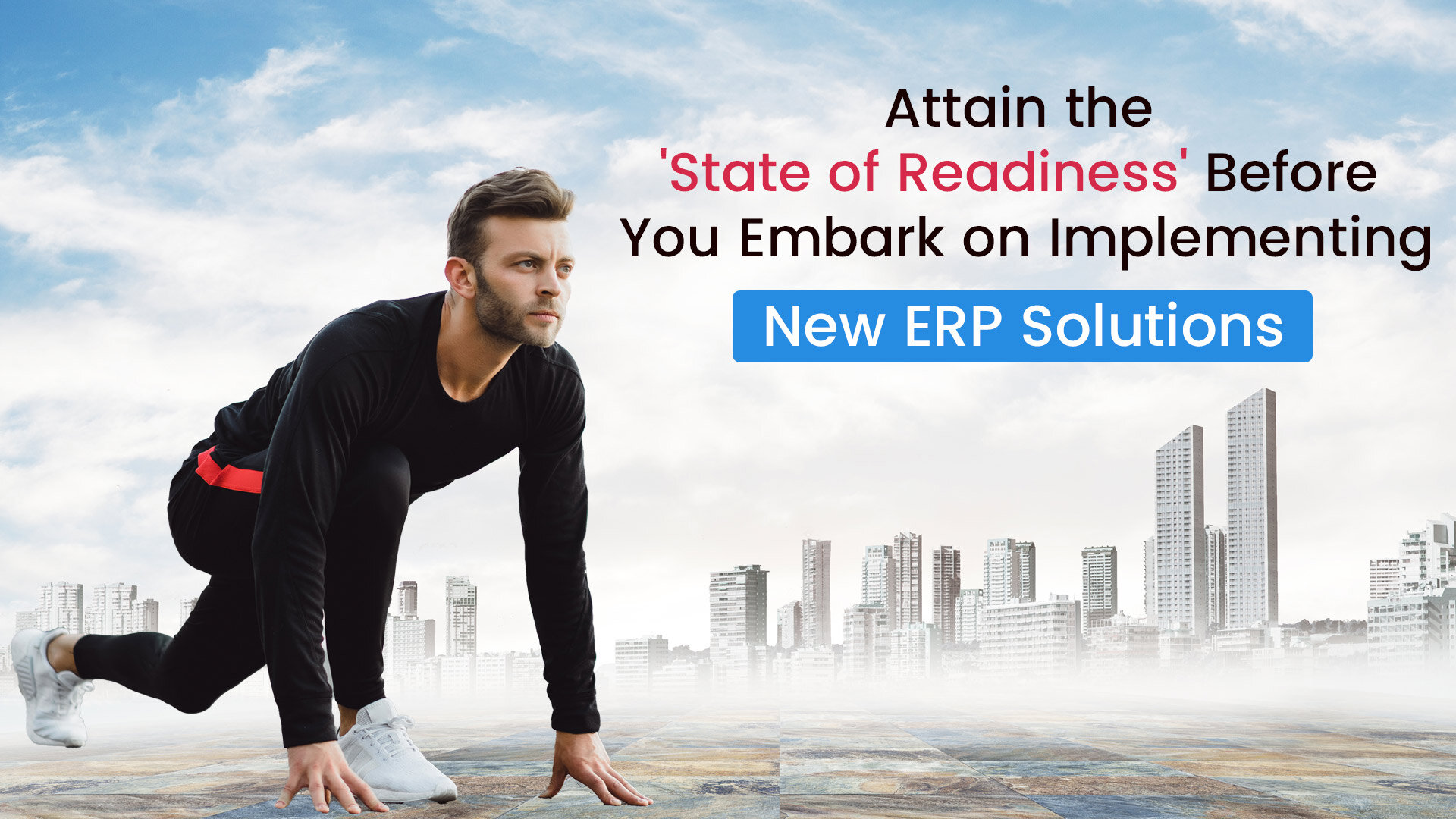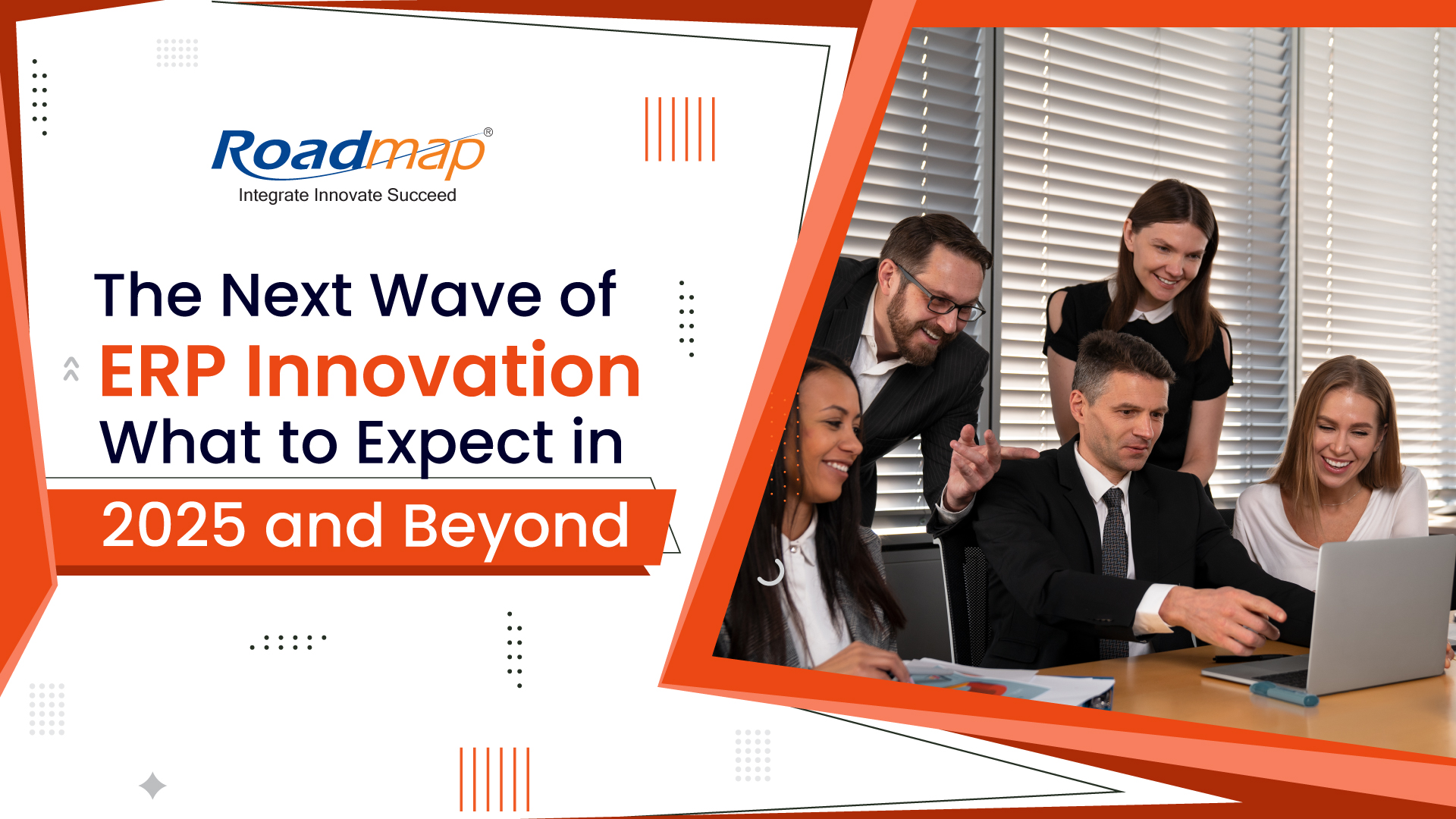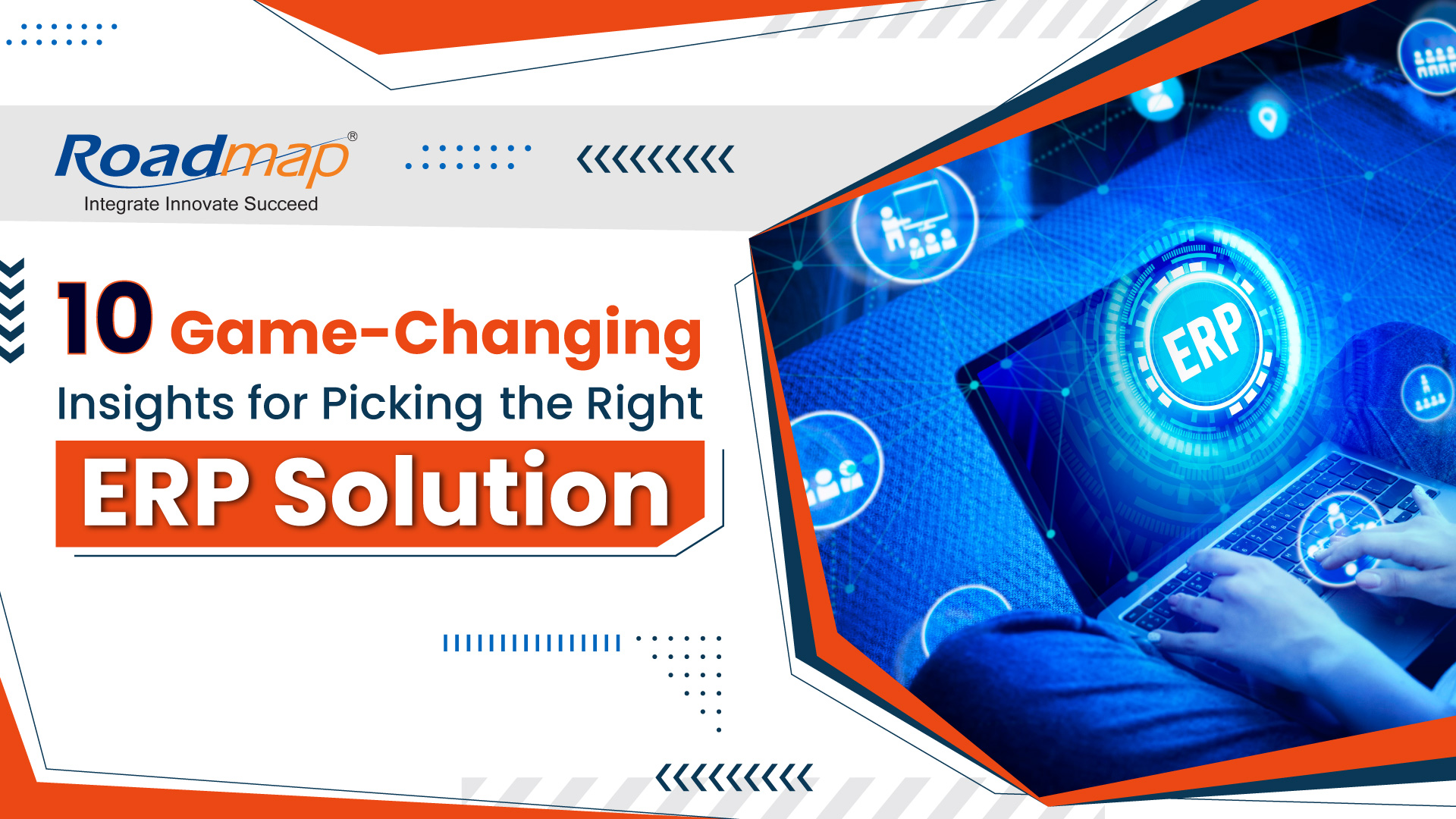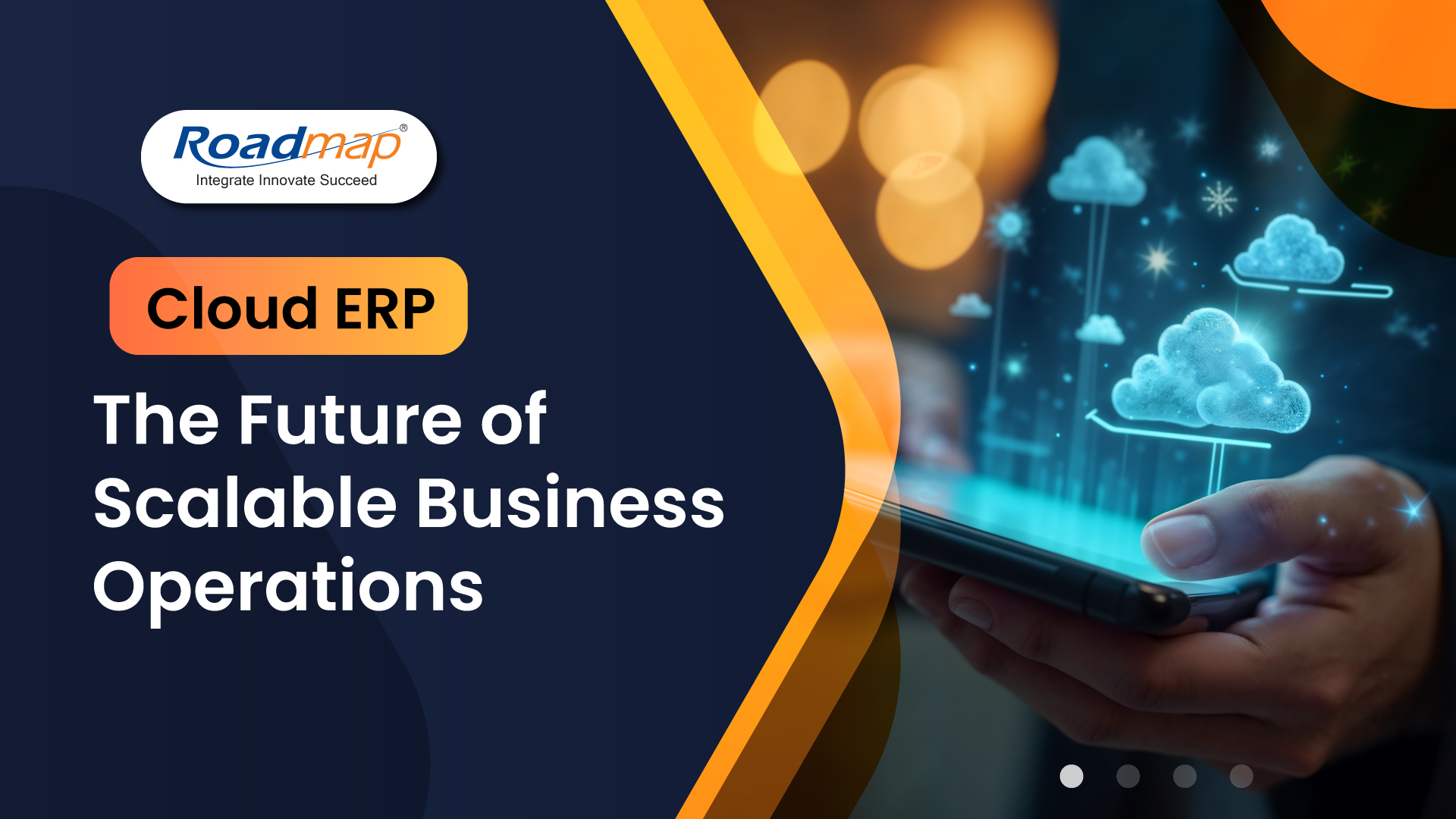
- Roadmap
- 19-Dec-2023 05:07:59
Attain the ‘State of Readiness’ Before You Embark on Implementing New ERP Solutions
We have come across numerous stories in the tech world relating to the failure of software implementation, pointing to various reasons for the cause. It could be any software applications like CRM, HRMS, or WMS that might not meet the purpose or real value as they are supposed to and get away with it without identifying the root cause of the failure.
Among those debacles, the most prominent one is the failure of ERP system implementation. It is perfectly normal in the digital age that almost every company uses ERP systems today and is constantly looking for digital transformation initiatives and strategies. They are ready to implement innovative operating models to achieve agility and relevancy, but the reality is different. What commonly prevails among business owners and industrialists are having a wrong perception of digital transformation.
Typically, they choose a technology and implement it. In the interim of these, what they overlooked and failed to recognize is organizational readiness. In addition, they have been experiencing many difficulties during and after the phase of software system implementation.
These are mainly due to the client team's expectations misaligned with the project implementation initiatives. They aren't on the same page and can't achieve consensus on their expectations. Each executive might have different expectations from the new system that are completely off from the ground reality. In some cases, they are likely overwhelmed and confused, which might pave the way for escalation in the project cost and time of completion. Companies are missing out on the phase of organizational readiness. They don't realize the need for organizational change management before diving into the ERP implementation process.
Three facets estimate organizational readiness for successful digital transformation - People, Process, and Technology.
All these facets should agree with the digital transformation before they move on to ERP implementation. Also, be sure all these pillars are taken care of and devise organizational change management strategies to minimize disruption during the ERP system implementation.
Organizational Readiness has six major components:
1. Strategic and Executive Alignment: The first and foremost component of organizational readiness is strategic and executive alignment. Usually, problems will arise from the top management. This component defines how well the key strategies and expectations of executives from the client side will align throughout the digital transformation phase. It's also significant that the client team should forecast how much transformation this ERP project will entail for the company.
We've created a checklist of each component for clients to make key strategic decisions:
Checklist:
- Examine and confirm whether your organization has clear expectations on the outcome of business transformation.
- What objections are you likely to face while implementing changes to business processes and models?
- Is the project posing financial and technical risks? Is the management equipped to anticipate or cope with this?
- How does the existing compensation structure work? How might it affect the political dynamics between various business units and functions?
2. Operational Readiness: Operational readiness can be compared to a physical map of the organization that shows your current status as well as your destination towards implementing a new ERP system. The first step in this process is to write down the mental models of the team involved to see where each person is heading towards the project. Building a common language makes it much easier for everyone to understand the desired state and why the requested operational changes are essential to the project's success. They should seek answers to queries that capture the objective and vision of the project. You could inquire about operational readiness like:
Checklist:
- Does the team involved in your project have the same mental models?
- What business process changes do we want to start deploying now - even before we go live with new ERP software? How will the revised business procedures be implemented?
- What are the critical business process decisions you must make to guide the technical consultants and ERP system integrators in the proper direction?
- Is it possible to re-engineer business processes without significantly impacting the core operations?
3. Data Readiness: Data readiness is one element that is perpetually disregarded when assessing organizational readiness. Data's general function in a system's context is to move a linked piece of information from one stage to the next. However, few people are aware of the relationship between data and ERP. Insufficient data preparedness can cause over-engineering of processes, resulting in change into bloated systems.
First off, a deep understanding of implementation is necessary when dealing with data issues. The following are the inquiries you ought to make regarding data re-engineering:
Checklist:
- How are the master data models now in use? Have you modified any of your procedures as a result of data problems?
- Have you been experiencing multiple disconnected instances of master data records in the existing system?
- Do you have data governance problems where the model doesn't seem to follow any logical structure?
4. People Readiness: One of the most critical organizational readiness components is people readiness, which calls for a thorough grasp of current behaviors and how those may affect stakeholders' willingness to change business models or processes. It's important to address any organizational impacts that were identified during the requirements-gathering phase.
The client should create an internal change team and initiate a change strategic plan well before beginning the implementation of the new ERP system. These are essential for successful business transformation initiatives.
The following are the inquiries you should be making regarding people readiness:
Checklist
- Do you sense that your people are reluctant to talk about underlying concerns during conversations?
- How do the people feel about the decision-making process relating to cross-functional issues?
- Do you believe that certain executives need control while others may find it challenging to voice their thoughts around them?
5. Technical Readiness: Businesses tend to overstate the significance of re-engineering business and processes but overlook technological readiness, which is equally important. Their opinions will always be necessary for business model adjustments and decision-making processes.
You should start developing internal IT support capabilities so that you are not unduly reliant on your ERP system integrator. There are chances that you'll need to integrate other technologies and data sources with your primary ERP system. To support this future state, you should identify new competencies and acquire them including creating an internal Centre of Excellence (CoE) for digital transformation.
Here are the questions you should ask to ensure technical readiness:
Checklist
- What state are your technical teams in? Do they appear to be exaggerating their abilities?
- Do they always seem to use programming to solve problems?
- Do they have a clear enterprise architecture plan and data strategy?
- Do they have access to the master data governance and reconciliation flows for the entire company?
6. Project Governance and Planning: There is more to meticulous project planning and astute management than just digital processes while you prepare for this significant transition. It also entails creating a schedule for effectively managing resources and informing stakeholders from inside and outside the organization about the changes made to physical processes. Do communicate and ensure your plan is in line with reality. A roll-out strategy should be part of this plan for implementing these changes in a way that makes sense financially and technically. KPIs can assist you in staying on course.
It's critical to keep in mind that only you, not your system integrator or anybody else, are the owner and responsible for this project.
Sum up:
All these viewpoints are equally important, resembling puzzle pieces that must fit together correctly to form a whole picture. It can be either problematic to prioritize technology over people and processes or might the technology be incompatible with the way your team operates, challenging them to use it effectively. A business blueprint and technological roadmap are necessary to code and configure things in a way that is consistent with the business vision.
Since every company's plan will be unique, don't hesitate to get in touch with us to discuss potential ideas for your digital transformation. We would be delighted to serve as a sounding board for your ERP project!




